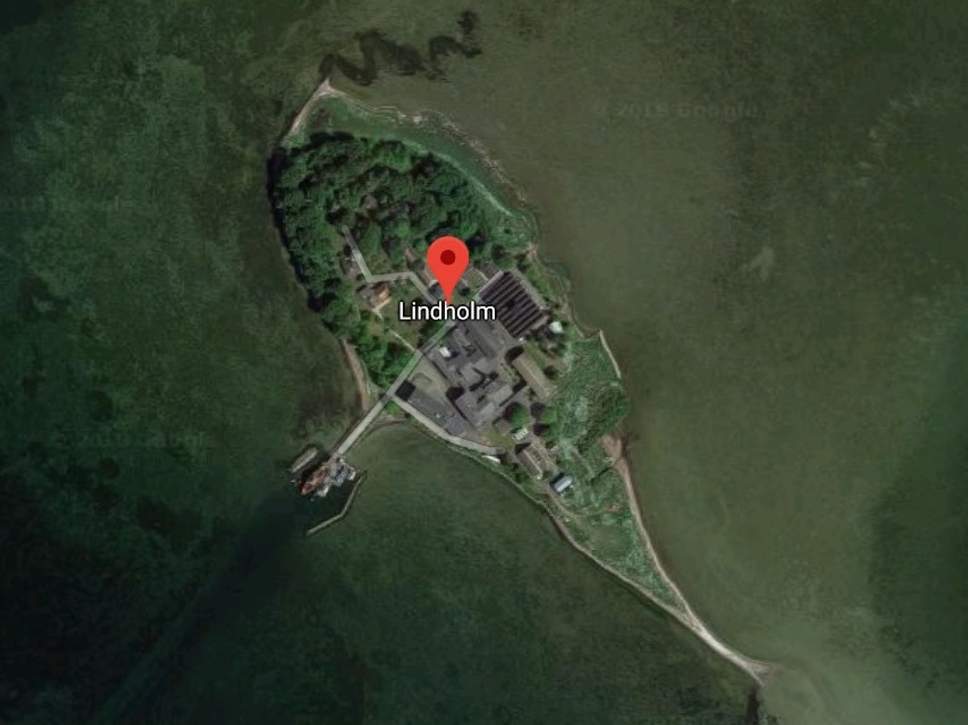Denmark to house foreign criminals on tiny island used for animal testing
Parliament passes scheme affecting 100 criminals who cannot be deported despite UN criticisms

A free daily email with the biggest news stories of the day – and the best features from TheWeek.com
You are now subscribed
Your newsletter sign-up was successful
Denmark’s parliament has approved funding for a plan to keep foreign criminals that have completed their jail sentences on a tiny island despite criticism from the UN and human rights groups.
The country’s government, “which is taking an increasingly tough stance on immigration”, according to The Guardian, wants to send up to 100 people who have completed jail sentences but cannot be deported because they are at risk of torture or execution in their home countries to the island of Lindholm.
It claims those who are deemed to be criminals, pose a national security concern or have “other relevant reasons” but cannot be deported for legal reasons will be moved to a facility on Lindholm, which had in the past been reserved for experiments on animals.
The Week
Escape your echo chamber. Get the facts behind the news, plus analysis from multiple perspectives.

Sign up for The Week's Free Newsletters
From our morning news briefing to a weekly Good News Newsletter, get the best of The Week delivered directly to your inbox.
From our morning news briefing to a weekly Good News Newsletter, get the best of The Week delivered directly to your inbox.
“The residents of the return centre will be foreigners, who due to criminality, national security concerns or other relevant reasons are excluded from residence permit as refugees, but who cannot be returned to their country of origin due to the risk of ill-treatment,” the government announcement said.
“They are unwanted in Denmark, and they will feel that,” the immigration minister, Inger Stojberg, wrote on Facebook.
The Danish People’s Party “celebrated the announcement of the policy by posting a cartoon on social media showing a dark-skinned man with a beard being dumped onto a desert island”, reports The Independent.
Alongside the image, the party wrote: “Deported, criminal foreigners have no reason to be in Denmark. Until we can get rid of them, we will move them to the island of Lindholm. They will be obliged to stay at the new deportation centre at night and there will be police around the clock. Great!”
A free daily email with the biggest news stories of the day – and the best features from TheWeek.com
Lindholm Island “has been used as a laboratory and crematory by scientists researching swine flu, rabies and other contagious diseases”, says Reuters. The government said it would decontaminate the uninhabited island by late 2019 and open the detention facilities in 2021.
Human rights activists “have denounced the decision, calling it degrading and inhumane”, says German state broadcaster Deutsche Welle.
While the mayor of Vordingborg municipality, Mikael Smed, where the island is located, was not enthusiastic about the measure. “People think this is not the solution to the real problems,” Smed said prior to today's parliamentary vote.
UN human rights chief Michelle Bachelet had also expressed concerned about the island measure last month. “I have serious concerns with this plan and we will monitor it and discuss it ... with the government,” Bachelet told journalists in Geneva.
“We've seen the negative impact of such policies of isolation, and (they) should not replicate these policies. Because depriving them of their liberty, isolating them, and stigmatising them will only increase their vulnerability,” she added.
-
 Will increasing tensions with Iran boil over into war?
Will increasing tensions with Iran boil over into war?Today’s Big Question President Donald Trump has recently been threatening the country
-
 Corruption: The spy sheikh and the president
Corruption: The spy sheikh and the presidentFeature Trump is at the center of another scandal
-
 Putin’s shadow war
Putin’s shadow warFeature The Kremlin is waging a campaign of sabotage and subversion against Ukraine’s allies in the West
-
 Switzerland could vote to cap its population
Switzerland could vote to cap its populationUnder the Radar Swiss People’s Party proposes referendum on radical anti-immigration measure to limit residents to 10 million
-
 Greenland’s capital becomes ground zero for the country’s diplomatic straits
Greenland’s capital becomes ground zero for the country’s diplomatic straitsIN THE SPOTLIGHT A flurry of new consular activity in Nuuk shows how important Greenland has become to Europeans’ anxiety about American imperialism
-
 Epstein files topple law CEO, roil UK government
Epstein files topple law CEO, roil UK governmentSpeed Read Peter Mandelson, Britain’s former ambassador to the US, is caught up in the scandal
-
 Iran and US prepare to meet after skirmishes
Iran and US prepare to meet after skirmishesSpeed Read The incident comes amid heightened tensions in the Middle East
-
 Israel retrieves final hostage’s body from Gaza
Israel retrieves final hostage’s body from GazaSpeed Read The 24-year-old police officer was killed during the initial Hamas attack
-
 China’s Xi targets top general in growing purge
China’s Xi targets top general in growing purgeSpeed Read Zhang Youxia is being investigated over ‘grave violations’ of the law
-
 Panama and Canada are negotiating over a crucial copper mine
Panama and Canada are negotiating over a crucial copper mineIn the Spotlight Panama is set to make a final decision on the mine this summer
-
 Europe moves troops to Greenland as Trump fixates
Europe moves troops to Greenland as Trump fixatesSpeed Read Foreign ministers of Greenland and Denmark met at the White House yesterday